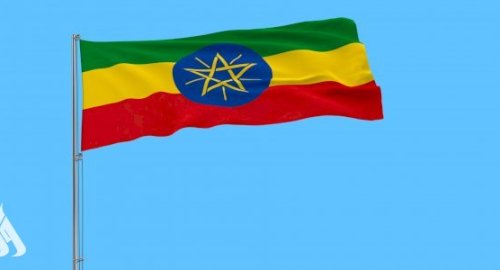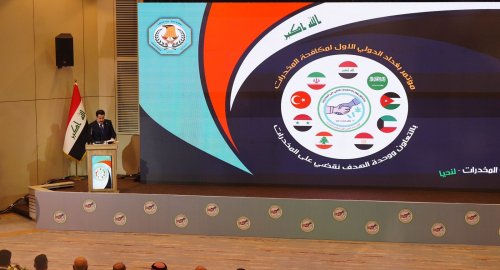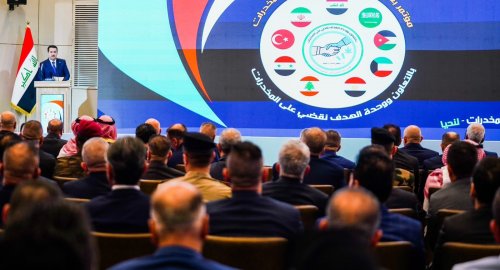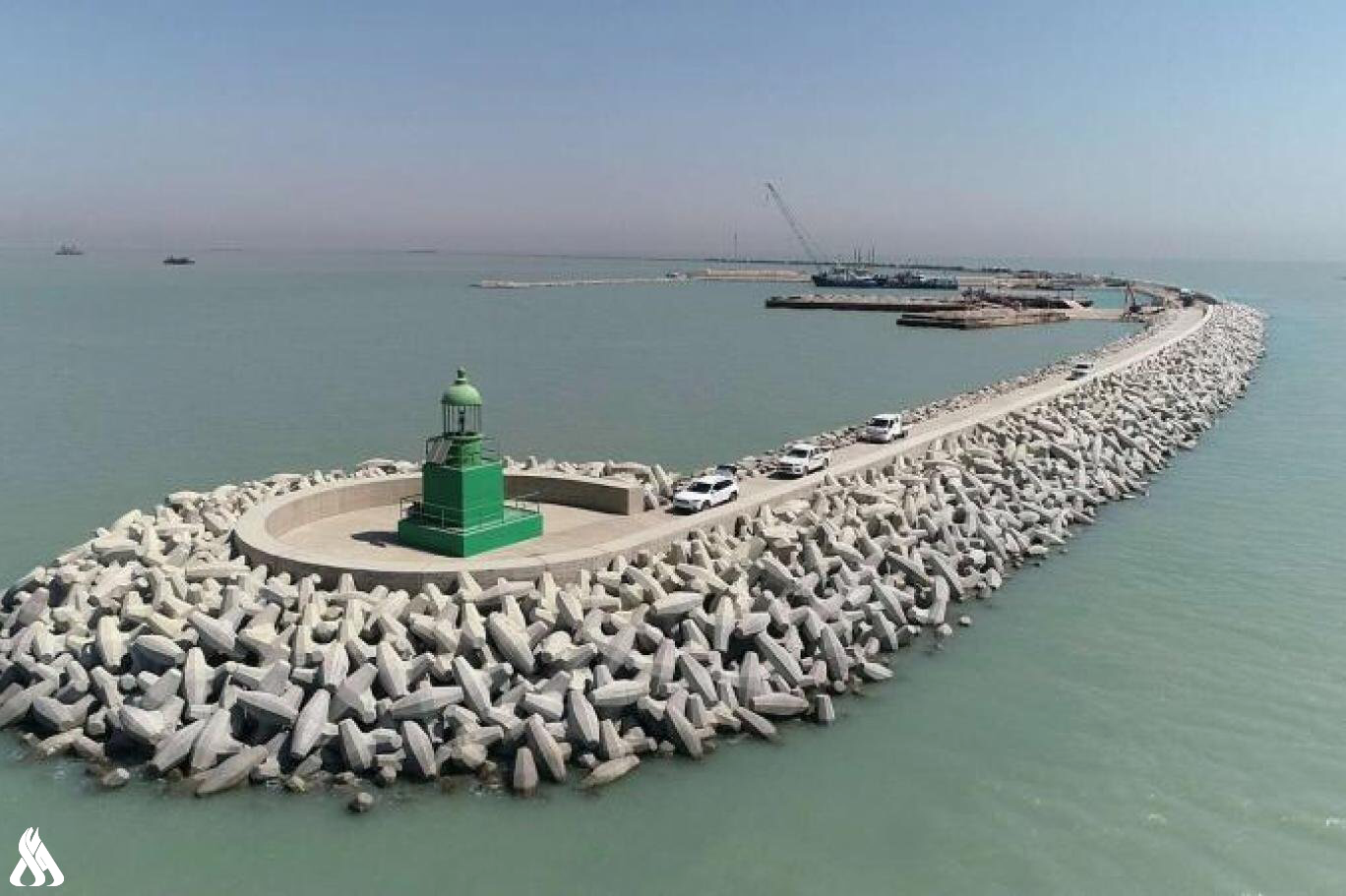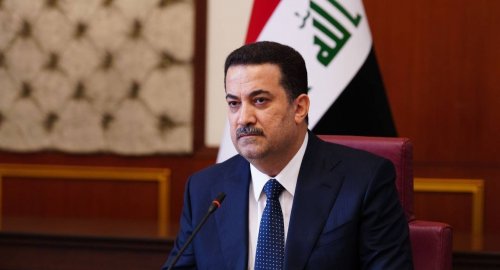
PM: Work is ongoing to strike drug trade

- 24-06-2023, 23:45
INA - BAGHDAD
Prime Minister Muhammed S. Al-Sudani announced the most important points of the semi-annual report for the implementation of the government program, stressing that the remaining contracts will be dealt with in the 2023 budget.
Al-Sudani said the following points, in an interview followed by the Iraqi News Agency - INA about the most important aspects of the semi-annual report for the implementation of the government program:
- The following is a summary of the first semi-annual report on the performance and progress of the government program approved on December 12, 2022, presented to the public, legislative, and constitutional authorities.
- The program underwent continuous follow-up from its approval session until the recent session on June 20, during which the report was approved.
- The work was accomplished without a federal budget, utilizing the available resources within ministries and governorates in line with the government's authority.
- Emphasis was placed on the five key priorities of the government program: tackling unemployment, combating poverty, combating financial and administrative corruption, service provision, and implementing economic reforms.
- Priority is given to expediting the completion of long-delayed projects hindered by mismanagement, lack of funding, or corruption.
- The fifth licensing round for oil and gas investments has commenced, and the announcement for the sixth licensing round to invest in gas resources has been made.
- Twenty-five healthcare institutions, including hospitals and specialized centers, have been completed, along with approximately 20 health centers and clinics.
- A significant rehabilitation campaign has been initiated to maintain various hospitals in Baghdad and the provinces. Notably, Al-Kadhimiya Hospital, Ibn Al-Baladi, and the Children's Hospital have been reopened after successful rehabilitation.
- Completion of 414 schools across multiple governorates has been achieved, with ongoing efforts to rehabilitate 300 additional school buildings. Additionally, plans are underway to construct 2,000 schools.
- Accomplishments include the rehabilitation of 170 km of highways roads, multiple sections of highways, and the inauguration of the 14 km Dora-Al-Yusufiyah Expressway.
- The Karbala refinery is now operational, with a capacity of 140,000 barrels per day. This will save Iraq up to $3 billion in oil derivative imports. Additionally, plans are underway for the expansion of the Al-Shinafiyah refinery in Diwaniyah.
- The digital transformation project of the General Company for Communications and Informatics has been completed, along with successful experimental operations to repel cyberattacks.
- Al-Mina'a Stadium in Basra has been completed and inaugurated during 25th Gulf Cup.
- Efforts have begun to provide services and engineering support in underserved areas and areas outside the urban planning of cities in Baghdad and other provinces.
- Efforts were focused on completing municipal services, street openings, modernizing the electrical grid, and rehabilitating schools in residential areas.
- Basic designs have been prepared for new cities, with the announcement of five cities in Baghdad and other provinces for middle-income and low-income groups.
- A total of 35 projects were launched to alleviate traffic congestion, including the construction of overpasses, bridges and the development of intersections and squares. Additionally, the delays in the entrance projects to the capital are being addressed.
- Emphasis was placed on the direct digital transformation and automation of paperwork in government departments to combat corruption.
- Introducing the National Education Strategy 2022-2031, aimed at rectifying the policies of education.
- Successfully secured long-term maintenance contracts with renowned international companies such as Siemens and General Electric, resulting in a cost reduction of 30%.
- Completing 25 substations for transmission and 129 substations in distribution sectors.
- Expansion of 311 km of feeders (11, 33 KV) and 923 km of electric transmission lines, contributing to national power production of 26,000 megawatts.
- Completion of comprehensive maintenance operations and the successful installation of cooling systems in 40 stations across Iraq, providing an additional 700 megawatts of power.
- Adding Salah al-Din power plant, boasting a capacity of 630 megawatts. Completion of 26 operational procedures in various sectors including combined cycle projects, transmission, maintenance operations, and collaboration with Total in the field of solar energy.
- Initiating a grand social survey campaign aimed at combating poverty, targeting two million families. 1.4 million families were surveyed, and cash aids were provided to approximately 492,000 families.
- Providing more coverage for applicants for life auxiliary programs and processing the paperwork for and benefiting 430,000 individuals with disabilities.
- Introducing the "my umbrella" electronic service for social protection beneficiaries while successfully recovering 150 billion dinars from individuals who exploited the social protection network.
- Providing five food baskets to 5.871 million individuals covered by the social protection program, and the sixth food basket is underway.
- Adding 42,000 displaced families to the social protection network program and reducing tuition fees for students in public universities' evening studies and private universities.
- Empowering small businesses through the launch of 100,000 IQD loans for individuals in the social protection network program.
-
Addressing unemployment and fostering job opportunities by providing relief to over 600,000 individuals holding higher academic degrees, contract workers, lecturers, and daily wage employees.
- Ensuring social security coverage for 65,000 new workers in the private sector.
- Implementing measures to regulate foreign labor in Iraq through a series of decisive actions.
- Promoting small and medium projects and launching a developmental and employment leadership initiative, catering to the needs of students and young individuals. Over 180,000 applications for participation have been registered, targeting training courses and facilitating loans for 100,000 participants.
- Increasing the capital of banks providing loans for productive projects.
- Establishing the Higher Commission for Combating Corruption and forming a special security team to pursue high-level corrupt individuals as part of our efforts to combat financial and administrative corruption.
- Operating within legal and constitutional frameworks, avoiding undue interference by officials that could hinder the anti-corruption process, and taking lessons from past experiences and their negative impact.
- Directing all ministries to thoroughly review previous major contracts, subjecting them to financial and legal scrutiny and emphasizing that ministers’ close teams and chief of staff are not affiliated with partisan or political parties.
- Contracting reputable international companies for financial auditing and successfully finalizing the National Anti-Corruption Strategy.
- Prioritizing cooperation in the retrieval of wanted individuals and smuggled funds as a fundamental aspect of our foreign relations.
- Taking decisive action to dismantle and apprehend a significant oil smuggling network, involving security personnel responsible for safeguarding oil transport and refineries.
- Introducing the single window system for streamlined company registration and establishing a dedicated audit committee to scrutinize commissions collected by electronic payment companies.
- Vigilant monitoring of money laundering and terrorist financing, including the endorsement of the "National Assessment of Money Laundering Risks" report.
- Enhancing the governance of government departments, particularly those providing public services, to minimize contact between citizens and state employees. Implementation of a unified treasury account for enhanced fund management across the state.
- Successful recovery of substantial amounts of embezzled funds in cases involving tax deposits, with ongoing daily government oversight of the matter.
- Implementing comprehensive administrative reform by establishing robust mechanisms for reviewing and evaluating general managers, deputies, and advisors, ultimately leading to ministerial assessments.
- Given the reliance on oil as the primary budgetary resource and increased spending, economic reform has become a top priority. As a result, we are actively promoting the development of the industrial and agricultural sectors.
- Various measures have been implemented to revitalize the industrial sector, along with the announcement of investment opportunities in Iraq's industrial sector.
- Progress continues on the rehabilitation of the strategic iron and steel plant in Basra, one of the projects that are scheduled for completion this year, alongside ongoing efforts to establish industrial cities.
- This year marked Iraq's most successful agricultural season in history, achieving self-sufficiency and surpassing 4.5 million tons of grain production.
- Prompt payment of farmers' dues within 24 to 72 hours upon crop delivery.
- Addressing challenges arising from fluctuations in the US dollar exchange rate and unimplemented requirements from previous governments, despite the agreement with the US Federal Bank.
- Conducting over 85% of trade through an electronic platform that adheres to international standards.
- Successful implementation of comprehensive modernization and automation of our national customs system.
- Establishing Iraq Development Fund in the three-year federal budget to align budgetary allocations with government priorities.
- Embracing a proactive approach to economic diplomacy in Iraq's international relations.
- launching the transformative "Development Road" project, fostering regional cooperation, stability, and advancing development initiatives.
- Sustained efforts in combating terrorism and achieving significant progress in curbing the drug trade, showcasing the commendable performance of our security services.
- Developing the National Strategy for Iraqi Women 2023-2030 and successfully hosting the 25th Gulf Cup.
Putin agrees to stop targeting Ukrainian energy facilities for 30 days
- International
- 09:20
